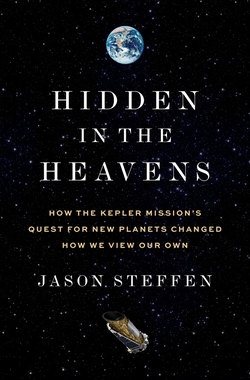The idea of interstellar flight forces long-term speculation. Barring unexpected breakthroughs, we are looking at mission times that, at best, are counted in the decades if not centuries. One of the purposes of Centauri Dreams is to encourage the kind of long-term thinking that plans and executes such missions. That such thinking — focused well beyond individual human lifetimes — is a worthy goal in and of itself should also be obvious, and it is actively championed in projects like the 10,000 year clock of the Long Now Foundation.
A partial spinoff from the Long Now called the Long Bets Foundation is increasingly active in providing a competitive arena for predictions about the future. It’s a fascinating concept, both a forum for discussion about long-range issues and a tool for philanthropic giving. People make predictions which, if challenged, become bets. Each prediction requires a $50 fee to the foundation, while a minimum of $200 is required to challenge a prediction. After a period of negotiations, the bet is finalized at whatever terms the two parties involved can agree on. Some bets go up well over the original $200. Winnings (with interest) are awarded to the winner’s preferred charity.
That assumes the winner is still alive at the time, which won’t always be the case. Paul Hawken, for example, offers a prediction that intelligent signals from beyond the Solar System will be received by the year 2050, while Kevin Kelly offers a 200 year prediction that downtown American cities in that era will look pretty much like they do today. I wish Kelly many years of good health, but he is unlikely to be here in 200 years; if his prediction is challenged and taken up as a bet, the foundation will choose a charity deemed closest to his original intentions as recipient for the money (assuming he’s the winner).
Some of these bets are going to inspire discussion for a long time, and of course that’s the idea. Thus Mitchell Kapor and Ray Kurzweil have squared off on the question: “By 2029 no computer – or “machine intelligence” – will have passed the Turing Test.” And here’s my favorite, pitting Danny Hillis against Nathan Myhrvold: “The universe will eventually stop expanding.” I don’t know how to figure the time frame on that one, but Hillis says yes and Myhrvold says no, and $2000 rides on the outcome. The accrued interest should light up the eyes of any surviving philanthropist.
Paging through the Long Bets site, you learn a good deal about what some very influential people are thinking. Michio Kaku and John Horgan are at odds over this one: “By 2020, no one will have won a Nobel Prize for work on superstring theory, membrane theory, or some other unified theory describing all the forces of nature.” And how about this: Freeman Dyson backs the notion that “The first discovery of extraterrestrial life will be someplace other than on a planet or on a satellite of a planet,” while Peter Spark says no.
The stakes in all these bets are placed in the Farsight Fund, managed by Capital Research and Management in Los Angeles. Take a look at this project to see how long-term thinking can be stimulated here and now through active discussion and philanthropic activity, and keep the Long Now Foundation in your list of active bookmarks as well. We live in a quick-turnaround, shortsighted era, a time desperately in need of an ability to focus beyond itself. That starts with individual decisions to think beyond a single lifetime for the good of the species, an ongoing effort that these two foundations continue to champion and one that Centauri Dreams applauds.


Another case for long-term thinking is the Initiative Future 25:
http://www.future25.org/
It is good to see that there are several groups around the globe with focus on the long haul!
Dissapointing. They need to update their website. Several notable bets…Red Sox Championship, 2004 election have been settled but the site is clueless.
Gives the flavor of an abandoned project.
Ray Kurzweil’s The Singularity is Near is being made into a
film for release in the Spring of 2008.
http://www.singularity.com/themovie/index.html